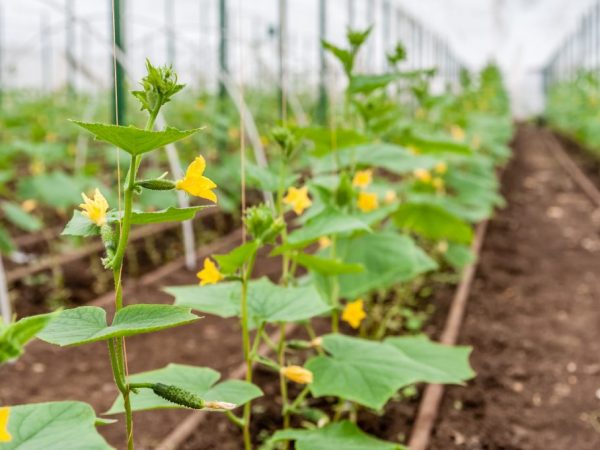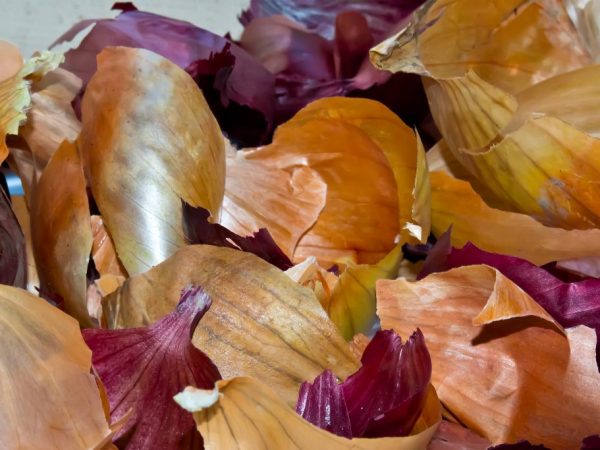Rules for feeding cucumbers with onion peels
Any farmer knows how much attention and care regular cucumbers require. A real panacea for all cucumber diseases can be called ordinary onion peel, which is present in abundance in any kitchen and is undeservedly disposed of. Experienced gardeners, who know how feeding cucumbers with onion peel works, begin to collect this unique product since autumn and by the beginning of the season accumulate it in sufficient quantities to use it as fertilizer.

Rules for feeding cucumbers with onion peels
The benefits of onion peels
Onion peels for cucumbers are actually much healthier than onions themselves. It contains rare biologically active and mineral substances, as well as a complex of vitamins and microelements.
- Carotene is a powerful antioxidant and natural immunostimulant. The level of carotene content in such a product is comparable only to its content in carrots. For cucumbers, carotene is useful in that it increases the vitality of seedlings, helps plants to fight various fungal and putrefactive diseases, and also improves the metabolism in the leaves.
- Phytoncides disinfect the entire harmful environment that is contained in the soil, not excluding even the simplest microorganisms, and only here their concentration is several times higher than is necessary for conventional protection. Phytoncides are found mainly in the outer part of the leaves and therefore easily pass into water when infused.
- B vitamins are true growth promoters for cucumbers. They are essential elements for the production of carboxylase, which is involved in the conversion of carbohydrates into useful substances. When processing seedlings with such a solution, the stems of the cucumbers will be more powerful, and the leaves will be stronger.
- Vitamins of the PP group or nicotinic acid are the most important microelements, without which the process of processing oxygen, sulfur and nitrogen by plants is impossible. If the plant receives additional nutrition rich in nicotinamide, it ceases to suffer from lack of lighting, and its root system becomes much more powerful, which is important for those who grow cucumbers on heavy alumina.
Application methods
For seedlings
To prepare the soil for planting seedlings, it must be dug up with mulch. You can also treat the seedlings with a solution, insisting a handful of cleanings in a liter of boiling water for a day. Spraying is carried out before planting in open ground, and then - no more than once every 6 days. This will help the cucumber seedlings to be more resistant to various fungal infections and protect them from harmful insects. If you process cucumbers in two ways, digging with such mulch and feeding with broth at the same time for one season, the harvest will taste bitter.
Top dressing of bushes

Onion peel decoction will prevent wilting of plants
To increase the yield of cucumbers and extend the period of fruiting, they are fed with a decoction of onion peels.It helps plants to restore vitality and recuperate after frost or prevent yellowing of cucumber leaves. This broth is prepared at the rate of 2 handfuls of leaves per bucket of water, brought to a boil and infused for a day. After that, the broth is diluted at the rate of 2 liters per bucket of warm water and the cucumbers starting to fade are fed with this solution.
Pest control
Cucumbers are often infested with thrips or spider mites.
In order for these insects to run away from the beds without looking back, spraying the leaves of cucumbers with the following infusion: pour a liter jar of tamped husks with two liters of warm water.
The use of the solution, the treatment of plants does not require special knowledge: let it brew for two days, strain and dilute with warm water in a ratio of 1: 2. You can also add a little laundry soap to it for better fixation on the leaves. It is necessary to thoroughly spray the leaves for 3 days in a row, then take a break of 7-10 days. The procedure is repeated several times. The same infusion, only without soap, is also used to treat the fungus, pouring it on the affected plants under the root.
Protecting cucumbers from aphids
In an emergency, if aphids are damaged, spraying according to the following recipe helps well: a glass of husk per 10 liters of warm water. Insist 15 hours and carefully process the affected plants.
The same infusion is used for prophylaxis against parasites in greenhouses. It is enough to put a bucket with this solution in a greenhouse and periodically spray cucumbers with it with a broom.
Conclusion
The range of application of onion husks in the process of growing cucumbers is very wide, since it is a universal agent for plant protection, and an irreplaceable fertilizer for their development and growth.


